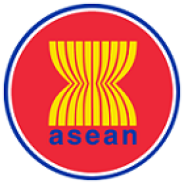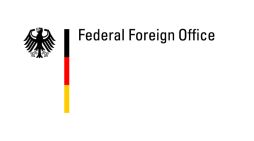
Project
The demand of cities for building capacities and infrastructures to react to the interrelated challenges of rapid urbanization, climate change and natural disasters is pressing. At the same time, cities offer a unique opportunity for ASEAN to use the concept of urban resilience to holistically react to these challenges. ASEAN has realized the urgency of building resilient cities in the face of climate change and rapid urbanization. As one of its strategic priorities, the ASEAN Strategic Plan on Environment (ASPEN) 2016-2025 seeks to build environmentally sustainable cities and outlines the promotion of sustainable urbanization and climate resilient cities in ASEAN as one of its specific objectives.
The objective of this project is to support ASEAN in meeting emerging urban resilience needs by building on former efforts and complementing ongoing activities. The primary aim is to establish urban resilience as an integrative, holistic concept within ASEAN to more effectively combine climate change adaptation, disaster risk management and sustainable urban development. The project will last until end of 2022 and focus on:
- Conceptual development of the topic ‘urban resilience’ for ASEAN.
Urban resilience measures are highly context-specific. A development of the concept in view of the local and international context will allow ASEAN to approach urban resilience at the intersection of climate change adaptation, disaster risk reduction and sustainable urban development more effectively. - Development of approaches to increase urban resilience.
adelphi will assist ASEAN in developing concrete visions of urban resilience by taking part in the development of practical solutions at horizontal (between the different ASEAN member states and structures) and vertical processes (between ASEAN, member states, cities and possibly other key players such as donors, science and civil society). - Supporting political dialogue at different levels of governance.
The project focuses on strengthening political dialogue and cooperation structures at various levels, thereby helping lend greater political importance to urban resilience. Reinforcing urban resilience can make a significant contribution to the implementation of the Paris Agreement and the global sustainability agenda.
To achieve this, adelphi is organising and leading participatory processes that bring together a range of stakeholders. In interactive dialogues, the project team will facilitate a discussion of urban resilience and approaches to increase urban resilience with experts and practitioners from various fields. It also aims at strengthening strategic and collaborative actions to improve integrated urban resilience planning in ASEAN. The project will also benefit from an exchange of best practices and lessons learned on urban resilience in ASEAN and Germany.
adelphi research
The project is implemented by adelphi research in the framework of ASEAN-Germany cooperation. adelphi research is an independent think tank for environmental and development policy research and analysis. Our mission is to enable transformative change and to create a sustainable future for generations to come. adelphi’s headquarter is in Berlin, Germany.
With regard to urban resilience, adelphi research works at the interface of urban planning, climate adaptation, and disaster risk management and combines its comprehensive expertise in these three areas. This is a key success factor of integrated approaches that are needed to develop innovative solutions for increasing urban climate resilience. In addition, possible opportunities and potentials that climate change presents for sustainable urban development can be easily identified and harnessed. Based on our expertise in integrating climate adaptation into urban development, we facilitate dialogue and participatory processes as key instruments for political consultation and decision-making.



